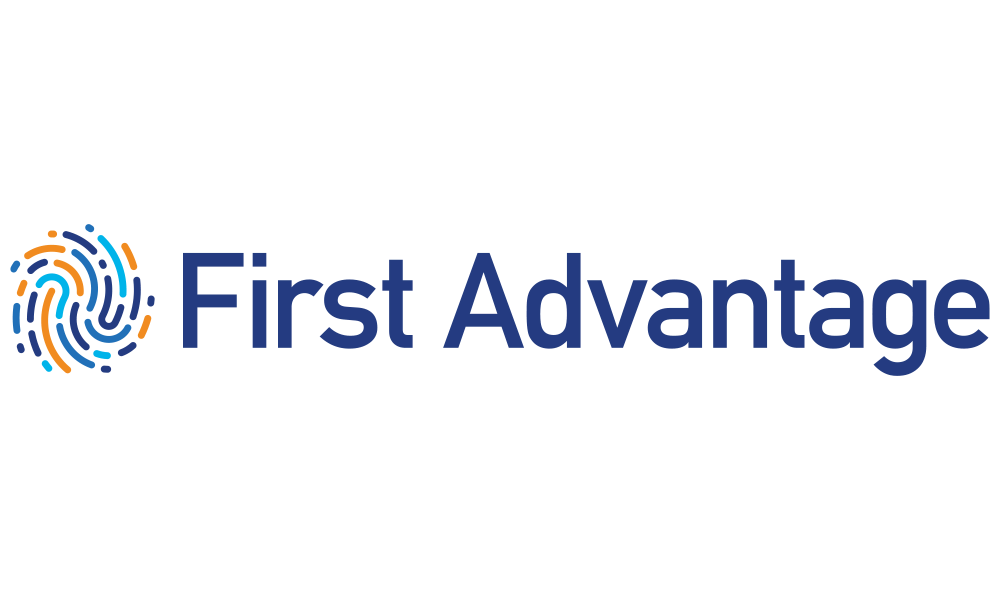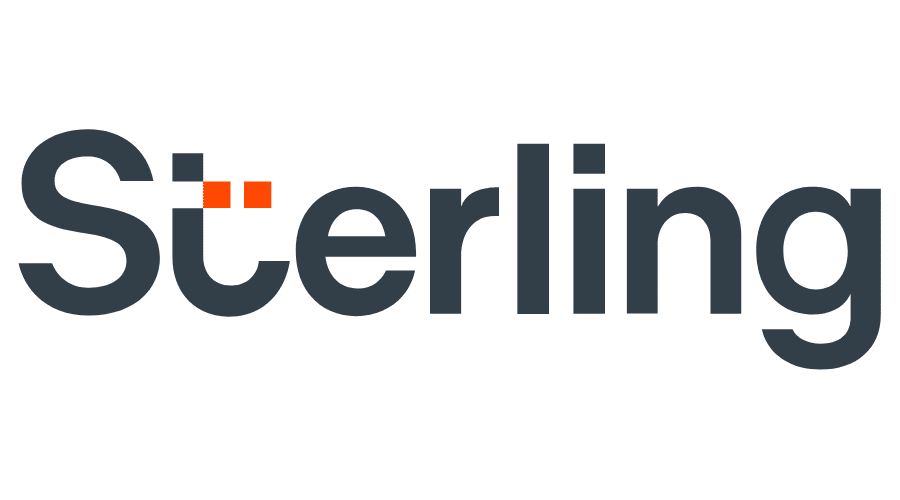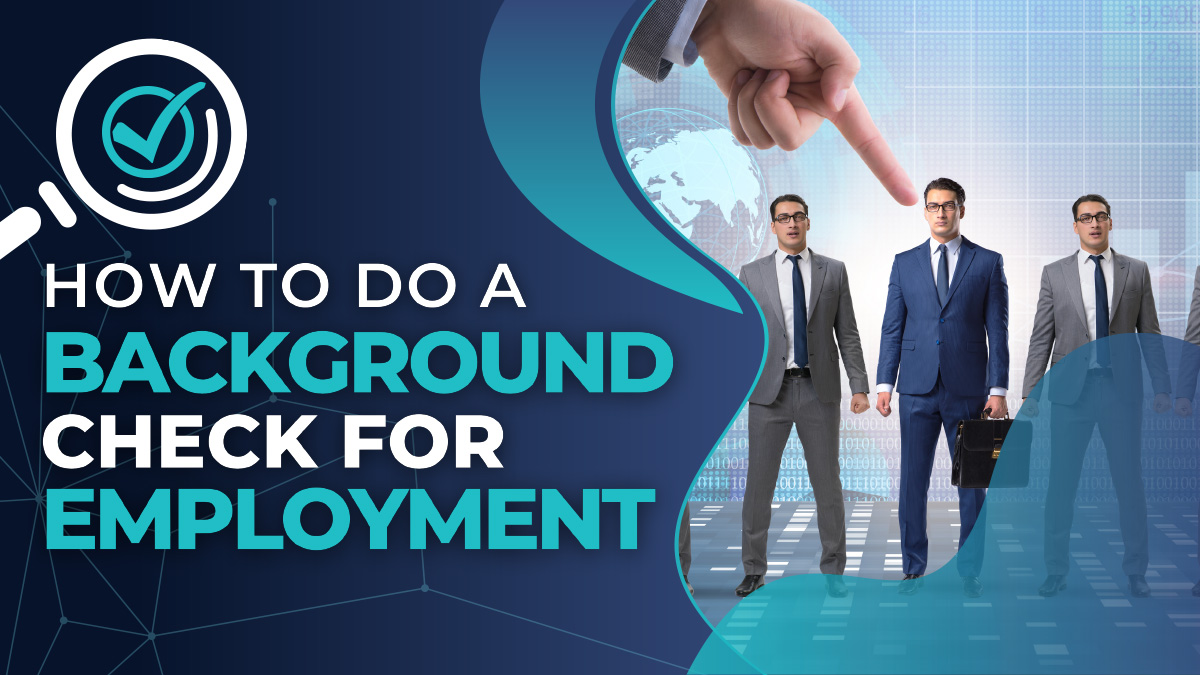Your company’s success hinges on your team. To hit your business targets, snagging skilled and dependable staff is key. Yet, building a high-quality crew takes work.
Check this: A fresh survey found 56% of folks jazz up their resumes. We’re talking embellishments about their work history, education, skill set, and job duties.
These untruths? They’re bad news. But skipping over certain truths can be even nastier. Take someone with a hidden violent streak, they might slip through your hiring process unnoticed.
Missing this crucial info can put your customers and team at risk. The fallout? Legal headaches over negligent hiring that could tarnish your rep beyond repair.
That’s where background checks come into play. They’re essential for curbing these risks and boosting your hire quality. They let you confirm past job details, skill levels, and schooling while outing any fibs or hidden skeletons.
Rolling out thorough, fair background checks, keeping within legal lines, helps you make savvy choices when picking your crew.
Step 1: Create An Employment Background Check Policy
A policy for conducting background checks outlines the specifics of your screening program to ensure its consistent implementation throughout your organization. This policy should encompass three key elements:
- Determining the Scope of Background Checks: Identify the types of background checks to be carried out and for whom they’re intended. Establishing a comprehensive background screening protocol across your organization is advisable, but it’s prudent to customize the screening packages based on specific job roles. For instance, financial management positions may necessitate credit checks, while those involving vehicle operations may require driving record checks.
- Consideration of Background Check Results in Employment Decisions: Clearly outline in your background check policy how the results of background checks will impact employment decisions. Best practices dictate taking into consideration factors such as the nature of the position, the type of offense, and the duration since the conviction occurred.
- Timing of Background Checks: Determine when background checks will be conducted within the recruitment process and establish intervals for screening current employees. While federal law permits employers to conduct background screening at any stage following candidate consent, it’s essential to be mindful of potential constraints imposed by state and local regulations, which may set stricter guidelines.
Having a policy in place for conducting background checks in writing can assist you in guaranteeing a just and transparent procedure, preventing any instances of discrimination, and avoiding any potential legal action or intervention from government entities.
Step 2: Compliance: Background Checks For Employment & The Law
Federal, state, and local laws and regulations dictate the rules for background checks. The employer must ensure compliance with these laws, as failing to do so can lead to expensive fines, settlements, and legal actions.
Here are four possible infringements that should be kept in mind:
- Consent Forms: The FCRA mandates that employers inform applicants in writing about the intention to conduct a background check for employment purposes. This disclosure must be presented clearly and prominently as a separate document.
- Adverse Action: The FCRA also stipulates a three-step adverse action procedure for employers planning to take unfavorable actions based on background check findings. This process entails sending a pre-adverse action notice, a copy of the background report, and a Summary of Rights. Subsequently, employers must allow the candidate a reasonable timeframe (typically five business days) to respond before issuing an adverse action notice.
- Ban-the-Box: Ban-the-box regulations vary across states and municipalities but generally require delaying background checks until after the first interview or extending a conditional job offer. These laws may also impact the adverse action process, necessitating a thorough review of applicable regulations.
- Title VII: Enforced by the EEOC, Title VII of the Civil Rights Act of 1964 prohibits employment discrimination based on race, color, religion, sex, or national origin. Certain background screening policies may lead to disparate treatment of protected groups, particularly minority populations, who are disproportionately affected by higher arrest rates.
Step 3: How to Choose a Background Check Company
Choosing the right background check provider is crucial for every business, as each company has unique hiring and screening requirements.
The ideal background check service should align with your hiring volume, business size, number of locations, HR team size, budget, background screening policy, and in-house legal counsel. When making a decision, consider various factors such as these:
- Enhanced Compliance Measures: Extend compliance efforts beyond FCRA standards to minimize the risks associated with unfair hiring practices and potential legal actions linked to EEOC regulations, ban-the-box policies, and local ordinances, especially crucial for organizations operating across diverse geographical areas.
- Streamlined Adverse Action Processes: Simplify compliance obligations with integrated adverse action workflows tailored to specific locales, ensuring timely notifications for sending pre- and final adverse action notices.
- Tailored Assessments: Enhance adherence to EEOC guidelines by incorporating features that prompt individualized assessments when recommended or mandated, thus reducing the risk of regulatory scrutiny.
- Customizable Screening Packages: Optimize screening processes by selecting tailored background check packages tailored to your industry, role specifications, and geographic considerations, avoiding unnecessary screenings and expediting processing times.
- Candidate-Centric Experience: Enhance candidate satisfaction with user-friendly, mobile-responsive workflows and digital consent options, facilitating swift initiation of checks. Promote transparency by granting candidates access to their background check status and reports via any device, fostering a positive candidate experience.
- Integrations: Streamline operations and reduce manual efforts by integrating seamlessly with your Applicant Tracking System (ATS), enabling smoother data transfers and enhancing overall efficiency.
Step 4: What Are the Different Types of Background Checks?
To make informed hiring decisions, it’s important to know the various kinds of background checks and their contents.
This will help you understand what to anticipate and how each type of check can assist you in hiring, considering your industry and the specific positions you want to fill. The following are some examples of these checks:
- Criminal Record Checks: National, state, federal, and county criminal background checks reveal both felony and misdemeanor convictions, as well as ongoing court cases. Depending on the provider’s policies, dismissed charges within a seven-year timeframe may also be included. These checks highlight offenses such as vandalism, public intoxication, disorderly conduct, violent or sexual crimes, fraud, and embezzlement. Employers utilize this information to gauge whether a candidate could potentially endanger customers or create an unsafe work environment.
- Civil Court Checks: County and federal civil court screenings unveil non-criminal suits, claims, and judgments where the candidate is named a respondent. These may encompass small claims, restraining orders, civil rights violations, and bankruptcies and are particularly pertinent for roles involving financial or managerial responsibilities.
- Credit Checks: Employment credit reports offer a comprehensive view of a candidate’s credit history, excluding their credit score. This includes payment patterns, civil judgments, tax liens, bankruptcies, outstanding bills in collections, and recent credit inquiries. Reviewing credit history may be obligatory for certain positions, especially those entailing financial asset access, transactions, and decision-making duties.
- Driving Record Checks: Motor vehicle reports (MVRs) validate license validity and shed light on a candidate’s driving past, encompassing DUIs, suspensions, and traffic violations. This is crucial for roles requiring employees, volunteers, or contractors to operate vehicles for business purposes.
- Drug Screening: Drug tests provide insights into recent usage of specific prescription and illicit drugs, aiding employers in fostering a safer and more productive workplace through routine employment drug testing.
- Employment Verification: Validate a candidate’s employment history and relevant job experiences to ensure sufficiency in meeting position requirements, as well as confirming past titles, accomplishments, or responsibilities.
- Education Verification: Verify a candidate’s academic attendance dates, majors, degrees, diplomas, or certificates to mitigate the risk of hiring individuals with false credentials and comply with regulatory standards.
- Healthcare Sanctions Checks: Conduct an OIG search and healthcare sanctions background check to ascertain a healthcare professional’s medical background, including any penalties or disciplinary actions, ensuring compliance with federal regulations and confirming their good standing.
- International Background Checks: Various international background checks furnish information on international criminal records, educational credentials, and employment history for candidates with previous residency, employment, or educational experience in other countries, even while residing in the US.
Step 5: What Do You Communicate to the Candidate?
To ensure a smooth background check process, it’s crucial to communicate with candidates effectively. Transparency is key when explaining the reasons behind conducting a background check and encouraging open dialogue.
Candidates should be informed that they can review their background check results, dispute any inaccuracies, and provide additional comments in writing or conversation.
It’s important to note that candidates possess certain rights under the FCRA as outlined in the document “A Summary of Your Rights.” When employing a background check provider for candidate screening purposes, it’s essential to adhere to these rights.
- Inform the candidate about the forthcoming background check and emphasize its potential impact on the hiring decision.
- Obtain written consent from the candidate to proceed with employment screening conducted by a background check company.
- Issue a pre-adverse action notice to the candidate if the background check results prompt reconsideration of their candidacy. Provide the candidate with a copy of the background check findings, outline their rights under the FCRA, and furnish the background screening company’s name, address, and contact information. Allow a reasonable period (typically five business days) for the candidate to dispute any inaccuracies in the results. Only issue a final adverse action notice in writing if the decision not to hire the candidate is finalized.
According to the EEOC, assess individual circumstances and the context surrounding a candidate’s criminal record. Factors to consider include the severity of the offense, the elapsed time since the incident, and its relevance to the position applied for.
Conducting an individualized assessment enables the candidate to offer additional insights into the offense and provides an opportunity for explanation.
What Is an Employee Background Checking Service?
A background check for employment functions as its name suggests: usually an online platform that allows employers, and occasionally consumers, to verify information about specific individuals by searching through various public databases.
The information accessed by these services is generally available to the public, making their value lie in the convenience they provide by offering a wide range of data and effectively organizing it for use in hiring decisions. These services are typically priced per report, though alternative pricing methods may also be available.
Most background check services operate independently, allowing businesses to use them whenever they need to conduct a report. However, some services are part of a larger HR software solution, which may require an additional cost.
Certain services focus primarily on providing data and offer an Application Programming Interface (API) for developers to seamlessly integrate background checks into their in-house solutions or existing third-party HR systems.
HR departments often rely on multiple services to ensure a comprehensive candidate profile. However, using multiple services can quickly become costly and repetitive if they produce duplicate background data.
Best Background Check Sites for Employment

GoodHire, which has a starting price of $29.99 for the Basic version, originated as a platform catering to small businesses’ employment background check needs. Over time, it has expanded its services to accommodate businesses of all sizes.
Established five years ago, the company now boasts over 75,000 business clients who benefit from its user-friendly and streamlined pre-employment background screening process. This process is specifically tailored for HR managers.
- Offers competitive pricing
- User-friendly applicant portal
- Projects a welcoming atmosphere akin to Checkr’s
- Features a comprehensive Resources section
- Lack of multilingual support
- The initial estimated report completion time was surpassed, although updated estimate dates were provided and met

HireRight provides extensive services for conducting criminal background checks on candidates locally and globally. Additionally, they offer I-9 verifications, driving record checks, and candidate experience checks.
Employers appreciate that HireRight integrates with popular applicant tracking systems (ATS) like Zoho Recruit, Greenhouse, JazzHR, Jobvite, and BambooHR. These are just a few examples of the ATS integrations available through HireRight.
Conducting background checks is just one of the many expenses companies must manage daily. The reviews we examined highlighted the affordability of HireRight’s services as a key reason businesses have switched from pricier competitors.
- User-friendly interface
- Cost-effectiveness
- Thorough screening process
- Centralized dashboard for streamlined management
- Delayed turnaround times
- Inconsistent customer service support
- Impractical expectations imposed on candidates

Checkr, a provider of employment background check services, offers a unique and practical approach. Established in 2014 as part of the technology accelerator program Y Combinator, Checkr distinguishes itself from competitors like A Good Employee.com.
Rather than functioning solely as a standalone service, Checkr is designed as an Application Programming Interface (API) for background checks. It aims to seamlessly integrate background screening into any company’s chosen applicant tracking system (ATS).
With pricing starting at $35, Checkr seeks to simplify the process and make it as effortless as possible for businesses to implement comprehensive background checks on potential employees.
- Excellent
- User-friendly
- Optimized for mobile devices
- Interface is intuitive
- While its estimated report turnaround time was slightly longer than that of other vendors, it was still completed within the provided timeline

In addition to the conventional pre-employment verifications, First Advantage goes above and beyond by offering background screenings for contractors, freelancers, and vendors. They prioritize an exceptional applicant experience by providing a mobile app that is easy to use.
Furthermore, they offer data analytics and diagnostic dashboards as valuable resources for background checks for employers looking to streamline their background check procedures.
- User interface
- User-friendly design
- Seamless integration with other CRM systems
- Delayed turnaround time
- Dropdown option list
- Integration with other screening applications

Having been founded in 1975, Sterling provides a wide range of services that include crucial checks like criminal records and driving histories, as well as more specialized offerings such as credit checks and ongoing monitoring of medical licenses.
With a global reach, they serve various industries, including education, construction, finance, energy, utilities, and transportation. Sterling’s API is renowned for its extensive integrations with top HR systems. This allows for scalability and customization options, enabling employers to simplify their background check procedures.
- Compatible with applicant tracking systems
- Well-designed mobile User Interface (UI)
- Customized dashboards with branded portals
- Cluttered UI
- Lack of transparency in pricing complicates forecasting

With a history spanning more than two decades, Peopletrail is an established background check service that has been operating in the industry since 1994.
The company specializes in conducting pre-employee background checks and serves clients across various sectors. Their services include verifications, volunteer background screening, criminal record checks, and drug testing.
Peopletrail has built a reputation for excellence and counts some of the biggest corporations among its clientele. Companies such as Intel, Whirlpool, Office Depot, and Amazon have all benefited from their comprehensive services.
Headquartered in Draper, Utah, Peopletrail boasts an extensive track record of serving over 20,000 businesses. They have completed over 100k searches with an impressive customer retention rate of 99.5%.
- Availability of direct support channels
- Lack of transparency in business pricing
- Inclusion of social media search option
- High search pricing
- Website experiences glitches
- Absence of smartphone applications
- Insufficient support options
Benefits of Running Business Background Checks
Employers perform background checks for employment to guarantee the selection of suitable candidates for the job. They aim to safeguard their business against individuals who may exhibit deceitful or irresponsible conduct in the workplace.
Another significant advantage is ensuring compliance with state and federal regulations. The extent of this benefit varies based on industry and position type, but conducting background checks can demonstrate that proper care was taken during the hiring process. Ultimately, such checks also contribute to enhancing workplace safety and protecting employees.
How Do You Fail a Background Check?
Each company has its own set of criteria for conducting background checks. You could be deemed suitable for one position but ineligible for another.
The EEOC and local regulations are in place to safeguard your rights against invasive or discriminatory background checks. Nevertheless, employers may have valid reasons for choosing not to hire you if you have a criminal history.
Here are some examples of outcomes that employers might take into consideration:
- Serious Felony Convictions: A record of felony convictions can pose a liability or safety concern for potential employers. It’s important to be proactive in addressing any unfavorable criminal background. Take the initiative to craft a well-thought-out response and provide references demonstrating your capability to contribute value to a company. Showcase that your past convictions are part of your history and do not hinder your skills or potential contributions.
- Dishonesty: Providing misleading or false information about your qualifications, employment history, or references can cast doubt on your integrity in the workplace. Maintaining honesty and transparency is essential.
- Negative Feedback: Adverse reports from references may deter hiring managers from progressing with your application. If you anticipate that a previous manager or colleague may offer unfavorable feedback, be prepared to offer context regarding the circumstances surrounding your departure from the role.
>> Conduct Employment Background Check With GoodHire >>
Other Considerations for Employers
If you’re considering conducting an initial background check for employment, there are a few extra details you should be aware of.
Hiring For Remote Positions
With the rise of remote work, the frequency of in-person interviews has decreased, while video interviews have become more prevalent. One way to enhance security during this process is by incorporating an identity verification check. This additional step adds an extra layer of protection to ensure the integrity and authenticity of the interview.
Delivery Times For Background Checks Vary
The length of time it takes to complete a background check for employment can vary depending on the specific types of searches being conducted. Certain providers can offer basic background checks that deliver results almost immediately, often within the same day.
However, more comprehensive screening services, such as county criminal record checks in areas where records are not digitized or verifications of employment and education history, may require up to five days or even longer to be finalized.
The FCRA Requires Company Verification
By FCRA guidelines, it’s imperative to confirm the authenticity of your company as a valid entity before proceeding with a background check request. Verifying your company’s credentials through a background check provider usually takes sixty minutes to twenty-four hours to finalize.
Use Free Background Checks At Your Own Peril
Conducting a background check independently is feasible, but it can be time-consuming and comes with inherent risks. It may require personally visiting courthouses in each jurisdiction, completing record response forms, and waiting for the desired outcomes.
However, there’s a possibility of losing potential candidates to other employers or, worse, making hiring decisions based on inaccurate or incomplete information if the results are incorrect.
Alternatively, if social media platforms are used to screen candidates, there’s a risk of encountering restricted criteria such as religion or race and subsequently making biased hiring choices.
You May Want To Conduct a Reference Check
Certain providers of background checks can perform verifications for employment and education in addition to offering reference check services.
Using a set of detailed questions during reference check interviews can assist in evaluating a candidate’s character, determining their alignment with company values, and gaining insight into how they may integrate into the company culture.
Consider Conducting Post-Hire Background Checks
Performing background checks is not a task that can be completed once and considered finished. Conducting post-employment background checks is customary, especially in specific industries and roles.
If you choose to do so, it’s important to incorporate an “evergreen clause” into the consent form for the background check, wherever permitted by state regulations. This ensures ongoing authorization for periodic screenings even after initial employment.
>> Best Employment Background Check Service Overall – GoodHire >>
5 Tips to Prepare for a Background Check
Background checks can be anxiety-inducing. Although it’s normal to feel apprehensive about the procedure, there are several methods you can employ to prepare yourself and ensure a just and precise background check.
Listed below are five suggestions for getting ready for pre-employment screenings:
- Educate Yourself: It’s reasonable to seek clarification from a hiring manager regarding the specifics of the background check they intend to conduct, as it may reveal sensitive information.
- Review Your Credit Report: Conducting a self-assessment of your credit report can be a precautionary measure, ensuring relevancy and providing peace of mind if your employer requests this information. If you suspect any inaccuracies in your credit check, take proactive steps to rectify the report by contacting the relevant reporting agency before potential employers make inquiries.
- Notify Your References: As a courtesy, always seek permission before listing someone as a reference on your resume. During the interview process, remind them of this inclusion and inform them that they may receive communication via phone or email.
If a Company Does a Background Check, Are You Hired?
It’s only sometimes the case. An employer can perform a background check at any given point, whether during your application process or right before you receive a job offer.
However, statistics show that 87% of background checks are typically conducted during pre-employment. This means that once you have been hired, it’s unlikely that your employer will conduct another check.
In some cases, employers may provide you with a conditional offer depending on the outcome of your background check. This indicates that they want to verify the relevancy of your information before proceeding further.
Frequently Asked Questions About Background Checks for Employment
Bottom Line – Background Check for Employment
Running a background check is standard when vetting candidates for different roles. If you’re at this point in the hiring game and have been upfront with your potential boss, you have nothing to fret about. They’re just doing their due diligence.
Still, it pays to be proactive and clear any possible mix-ups or mistakes. Maybe everything’s peachy, but just knowing the drill can ease any jitters while you wait for those results to roll in.
>> Conduct Employment Background Check With GoodHire >>
All product names, logos, brands, trademarks, and registered trademarks are the property of their respective owners.
DISCLAIMER: You may not use the non-FCRA approved services mentioned in this article or the information they provide to make decisions about consumer credit, employment, insurance, tenant screening, or any other purpose that would require FCRA compliance. These services don’t provide consumer reports and are not consumer reporting agencies. (These terms have special meanings under the Fair Credit Reporting Act, 15 USC 1681 et seq., (“FCRA”), which are incorporated herein by reference.)
The information available here may not be 100% accurate, complete, or up to date, so do not use it as a substitute for your own due diligence, especially if you have concerns about a person’s criminal history. The services we mention do not make any representation or warranty about the accuracy of the information available through our website or about the character or integrity of the person about whom you inquire. For more information, please review each service’s Terms of Use.
 Sections of this topic
Sections of this topic
















